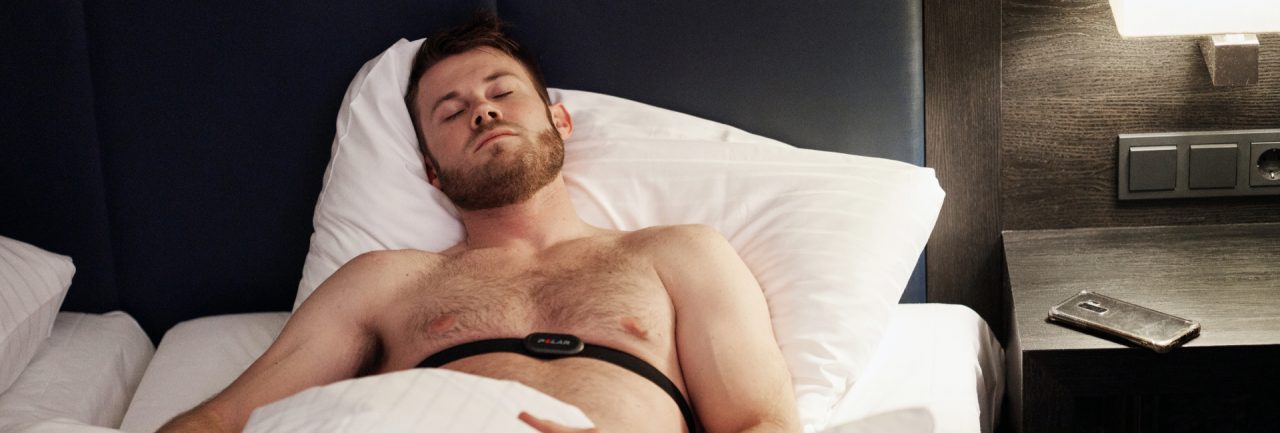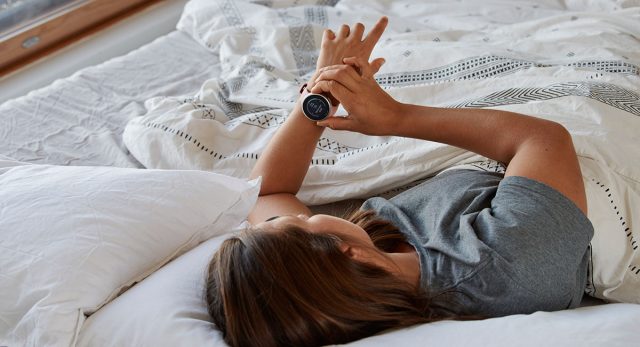When it comes to sleep and mental health, we all know that proper rest and recovery make us feel a whole lot more positive about life.
Yet, sometimes good sleep is hard to come by.
We spoke with The Sleep Doctor himself, Michael Breus, PhD, about the essential link between sleep, mental health, and building resilience. Plus, how to ensure your bedroom is prepped for a great night’s rest.
How does regular, good quality sleep enhance our mental strength and resilience?
How do you connect better? With humor, happiness, and less conflict.
Resilience is not extraordinary – it’s not a trait you either have or do not have. According to the American Psychological Association, it involves beliefs, thoughts, and actions that can be learned by anyone.
The primary factor that contributes to resilience is having caring and supportive relationships, both within and outside of your family. In addition, you need to be able to make realistic plans, have a positive viewpoint, have some skills in communication and problem solving, and be able to manage strong feelings and impulses.
So the KEY is connection: how do you connect better? With humor, happiness, and less conflict.
Sleep affects your sense of humor. There’s quite a bit of data to show that when you’re sleep-deprived, you’re not that funny (and after all, the best way to attract a romantic partner is to make them laugh). Plus, your sense of humor is dulled, considerably.
Sleep affects your happiness. For example, a lack of sleep between bed partners due to snoring has shown a significant influence on marital discord.
Sleep affects self-confidence and self-image. Short sleep duration has been related to lower optimism scores.
Sleep affects conflict. This just seems obvious: you have a more negative viewpoint, you’re more emotionally arousable, and cranky.
Sleep affects problem-solving. Data shows that as we get more sleep deprived we make riskier and riskier decisions.
Sleep deprivation causes over-reactions. MRI data shows when sleep-deprived we view images as more negative.
Is there a particular stage of sleep that’s essential for Achieving this?
REM sleep is the stage in which we see the most mental restoration
No, but getting sleep within your genetically pre-determined chronotypical sleep schedule, and getting the personalized amount of sleep you need, solves this issue. It’s about the whole process of sleep, not the individual pieces (in this case, sleep stages).
That said, looking at the sleep stages specifically, we know that REM sleep is the stage in which we see the most mental restoration. REM sleep makes up about 25% of the night. In addition, during REM sleep we see the Glymphatic System in full swing (this is the system that removes Alzheimer’s causing proteins called Beta-Amyloid and Tau), so this part too, helps with resilience.

What is sleep debt and how does it impact our mental health and cognitive functions?
A study at UCLA has shown that sleep deprivation affects specific cellular functions.
Sleep Debt is a concept that represents the amount of sleep a person ‘carries with them’ when they are sleep deprived. The larger the debt, the larger the problems related to sleep deprivation.
It’s actually difficult to find a cognitive skill that’s NOT affected by sleep deprivation. For example, a study at UCLA has shown that sleep deprivation affects specific cellular functions.
In addition to there being less activity in the brain when sleep-deprived, there are several other ways sleep deprivation affects cognitive decline:
- Disrupts levels of hormones, including serotonin, dopamine, and cortisol, that affect thought, mood, and energy.
- Leaves key areas of the brain in an “always-on” state of activation.
- Activates genes that interfere with optimal brain activity. (Our genetic make-up differs from one person to the next, so the effects of sleep deprivation on brain function can vary as well. Some people will experience the negative cognitive and mood effects of sleep deprivation more than others.)
So what actually happens? You do not focus well, your reaction time slows down (similar to that of alcohol), you will have issues making and storing new memories, your decision-making skills suffer, and you are less creative.
What kind of conditions do we need to ensure we rest and recover properly?
Our sleep environment turns out to have a dramatic effect on our ability to get high-quality sleep. There are four key factors to consider when creating the ideal home sleep environment:
Sight – a dark bedroom, with peaceful colors and low lighting is best for sleep. Look at ways to minimize the amount of screen light, from TVs and digital screens, in your bedroom.
Sound – focus on eliminating, reducing, and blocking the noises in your bedroom that are disruptive to your sleep. Looks at using earplugs, a sound machine, and a gentle-sounding morning alarm.
Touch – invest in the highest-quality bedding you can afford and choose materials that fit your local climate. Always use natural, breathable fibers such as wool, down, cotton, linen, and silk.
Smell – clean, filtered air allows you to breathe more easily and better air quality also cuts down on the risks of allergy flare-ups and respiratory illness, both of which can interfere with sleep.
Taste – eating too much in one sitting, too late in the evening, or unhealthy food could interfere with your sleep. High fiber, high protein whole foods can help you fall asleep more easily and sleep better throughout the night.
Temperature – the sleep rhythm follows the core body temperature rhythm, so having (as close to) an ideal room temp, and under the cover temperature can be vital.
If you liked this post, don’t forget to share so that others can find it, too.
Or give it a thumbs up!
I like this article
Please note that the information provided in the Polar Blog articles cannot replace individual advice from health professionals. Please consult your physician before starting a new fitness program.





